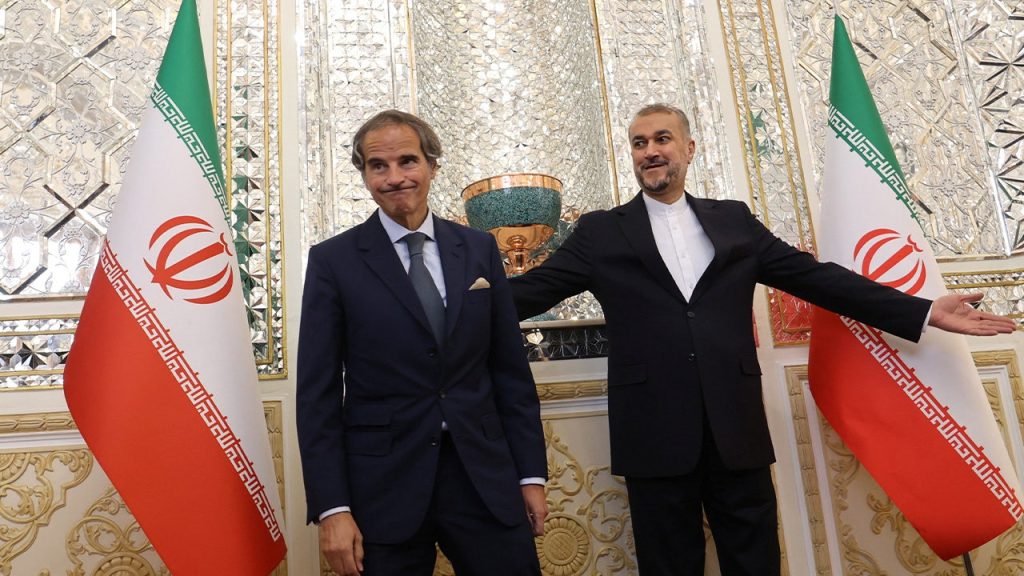Tensions between Iran and Israel have been escalating, with the International Atomic Energy Agency working to prevent a nuclear escalation. The Director General, Rafael Grossi, traveled to Iran to discuss Tehran’s nuclear program and urged Israel not to attack Iran’s nuclear installations. Despite warnings from the White House, Israeli Defense Minister Israel Katz indicated that strikes on Iran’s nuclear facilities were a possibility. With the upcoming change in US administration, the stance on Israeli strike options may change, but Iran remains undeterred and has threatened a retaliatory blow following Israel’s attacks in October.
During a meeting with Major Sajjad Mansouri’s family, who was reportedly killed during Israeli strikes, Iranian officials promised a “crushing” response to Israel. Major General Seyyed Abdolrahim Mousavi stated that Iran will determine the time and manner of their response, promising no hesitation. Deputy Commander of the Iranian Revolutionary Guard, Ali Fadavi, echoed these sentiments by predicting the downfall of the Zionist regime. The Iranian Supreme Leader, Ayatollah Ali Khamenei, had also previously issued a warning of a “crushing response” to Israel. Iran remains steadfast in its commitment to retaliate against any attacks from Israel.
Israel has responded to the threats from Iran by ramping up attacks against Iran-backed proxies like Hezbollah in Lebanon and the Islamic Jihad terrorist organization in Syria. The Israeli Defense Forces struck militant positions in Beirut and Damascus, resulting in casualties in both locations. The Lebanese Health Ministry reported six deaths and 15 injuries in Beirut, while 15 were killed in Damascus with 16 more injured. Senior Advisor to Khamenei, Ali Larijani, visited Damascus and was scheduled to head to Lebanon to discuss regional developments with high-ranking officials. The situation in the region remains tense with ongoing military actions from both sides.
Despite international efforts to stall Iran’s nuclear program, Tehran continues to develop it and remains undeterred by threats from the US or Israel. The upcoming change in US administration could potentially impact Washington’s policies in the region, but the hardline approach against Iran is expected to continue. Director General Grossi’s trip to Iran comes at a crucial time as tensions between Iran and Israel remain high. The potential for a nuclear escalation looms, with the UN’s atomic watchdog trying to prevent further destabilization in the region.
Iranian military and government officials have issued threats of retaliation against Israel following the October attacks. They have vowed to deliver a crushing blow to Israel, with promises of divine victory and downfall of the Zionist regime. Despite warnings from the international community, Iran remains determined to respond to any aggression from Israel. As military actions and rhetoric escalate between the two countries, the risk of further conflict and destabilization in the region increases. The situation requires careful diplomatic maneuvering to prevent a full-scale escalation of hostilities.
The ongoing tensions between Iran and Israel have led to increased military actions from both sides, with casualties reported in Beirut and Damascus. Israel’s strikes target Iran-backed proxies in the region, while Iran vows to retaliate against any attacks. The region is facing a volatile situation as both countries continue to engage in military actions and issue threats against each other. The international community, including the UN’s atomic watchdog, is closely monitoring the situation to prevent a potential nuclear escalation. The need for diplomatic efforts to de-escalate tensions and prevent further violence is becoming increasingly urgent as the situation in the region remains precarious.













